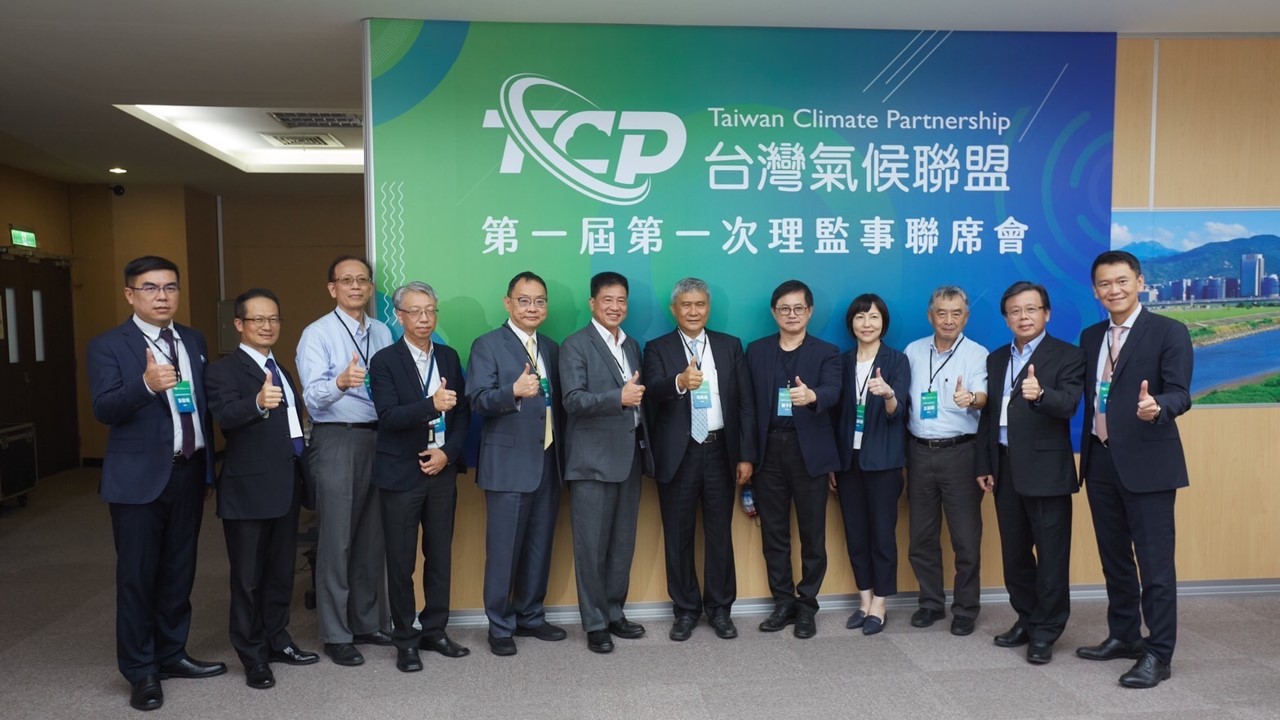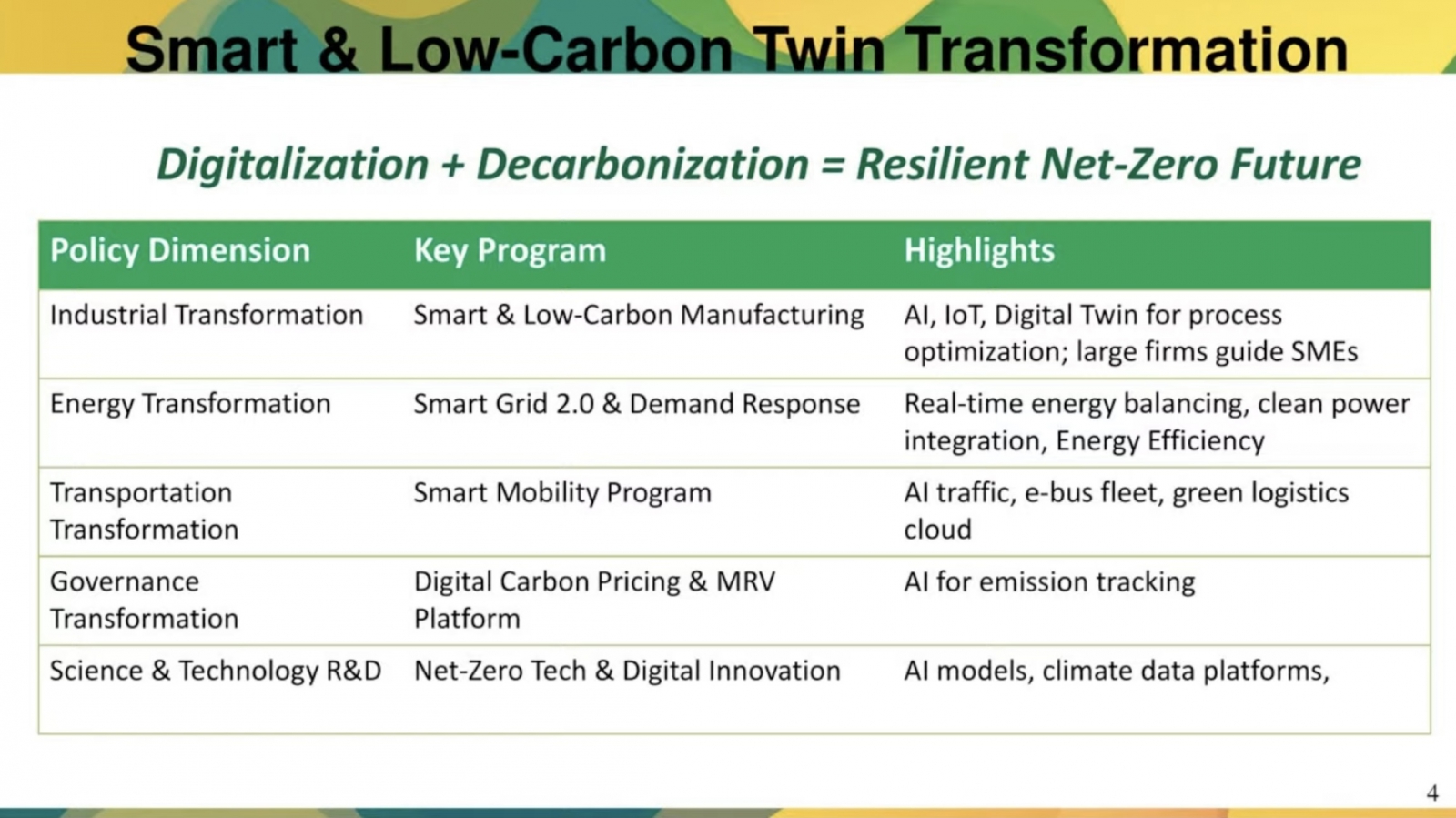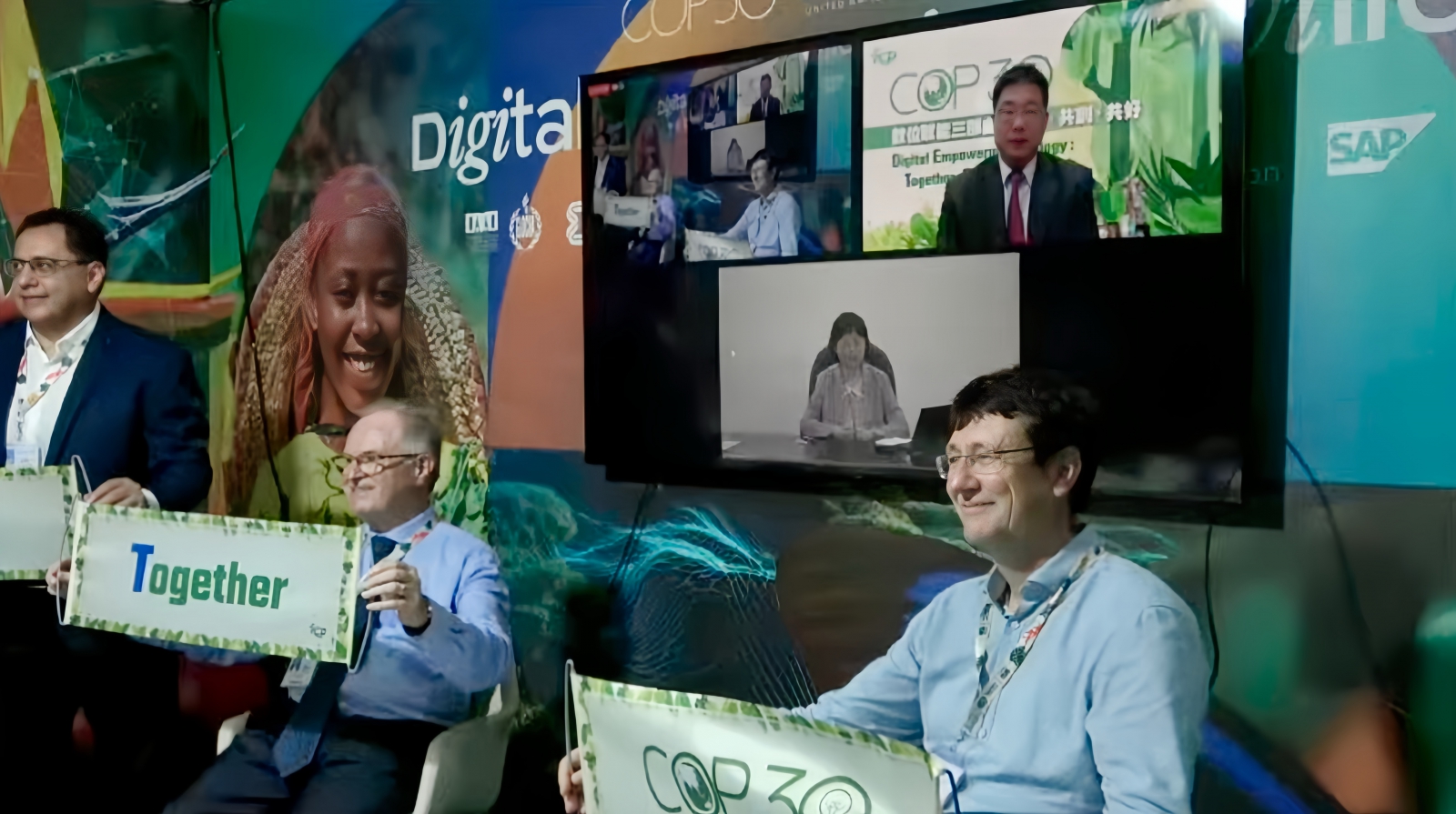The Taiwan Climate Partnership (TCP) and the Global Enabling Sustainability Initiative (GeSI) co-hosted “Digital Empowerment Trilogy Part 1: Together for Global Impact – Fostering Public-Private Collaboration,” where speakers shared Taiwan’s experience in public-private collaboration for digital and green transition. (Screenshot of livestream)
At COP30, Taiwan brought its experience in public-private collaboration for digital and green transition to the international dialogue. The session, “Digital Empowerment Trilogy Part 1: Together for Global Impact – Fostering Public-Private Collaboration,” was co-hosted on Tuesday by the Taiwan Climate Partnership (TCP) and the Global Enabling Sustainability Initiative (GeSI).
Through international partnerships, Taiwan’s private sector is advancing carbon reduction efforts, while the public sector strengthens corporate competitiveness through net-zero policies.
Private sector: Industry leads with collaboration and innovation
TCP’s members include eight major companies: TSMC, AUO, Delta, Acer, ASUS, Pegatron, Lite-On and Microsoft Taiwan. Together they form a cross-industry alliance that promotes climate governance and shares best practices among Taiwan’s ICT leaders. The partnership, said Paul Peng (彭双浪), chairman of TCP, shows how collective industry action can align with international standards such as RE100 and the Science Based Targets initiative (SBTi) while advancing regional cooperation in green energy and carbon trading.
Through international partnerships with the GeSI, the Philippines Climate Change Commission (CCC), the Environmental Governance and Decarbonization Consortium (EGDC), and Japan Climate Leaders’ Partnership, TCP is working to connect Taiwan’s private sector with global sustainability networks.

TCP’s members — TSMC, AUO, Delta, Acer, ASUS, Pegatron, Lite-On, and Microsoft Taiwan — form a cross-industry alliance dedicated to strengthening climate governance and sharing best practices among Taiwan’s ICT leaders. (Photo: TCP)
Peng noted the structural challenges of renewable development on a densely populated island with limited land and complex terrain. Solar capacity remains constrained, and wind power is largely confined to offshore projects, which raises costs and slows deployment.
While Taiwan lacks abundant renewable resources, he said its technological strength offers a clear advantage. “By effectively using AI tools and smart management systems, we can enhance energy efficiency and storage,” Peng said, underscoring technology’s role in industrial decarbonization.
TCP also engages in policy advocacy, advising the government on climate governance and regulatory reform. Peng said that “government leadership is necessary,” adding that while the private sector can collaborate voluntarily, the government plays a crucial role in coordinating resources and driving systemic change across sectors.
Public sector: Government as the pillar of net-zero transition
Public-private partnership is at the heart of Taiwan’s climate strategy, said Tsai Lin-Yi (蔡玲儀), Director General of the Climate Change Administration under the Ministry of Environment. “It’s about building a resilient and sustainable future together,” she said, noting that while the government provides the framework and financial mechanisms, businesses drive innovation and implementation. Tsai explained that the administration’s approach integrates technological innovation, financial incentives and regulatory reform to advance both digitalization and decarbonization.
Tsai emphasized that the government serves as an integrator and promoter, ensuring that net-zero policies enhance competitiveness and create opportunities rather than impose constraints. “Carbon pricing will become a new engine for green growth,” she said, adding that Taiwan’s carbon fee mechanism and Green Growth Fund (綠色成長基金) are designed to mobilize investment in emerging low-carbon industries.
A key initiative, the Smart and Low-Carbon Manufacturing Program, brings together technology leaders such as TSMC and members of TCP to apply AI and IoT solutions that help small and medium-sized enterprises improve energy efficiency. “Digitalization and decarbonization are meant to strengthen our industrial resilience,” Tsai said, describing the dual transformation as a cornerstone of Taiwan’s sustainable growth strategy.

The Smart and Low-Carbon Manufacturing Program brings together technology leaders to apply AI and IoT solutions that help small and medium-sized enterprises improve energy efficiency. (Screenshot of livestream)
European perspective: Aligning digital and green transitions
As Taiwan promotes its dual digital and green transformation, similar ideas are taking shape internationally. “Digital and green transformation are taking place at the same time,” said Björn-Sören Gigler, Senior Digital and Green Transformation Specialist at the European Commission’s DG CLIMA. “Bringing these two transitions together is at the forefront of international cooperation.”
Gigler introduced the European Green Digital Coalition, a group of 37 ICT companies committed to achieving carbon neutrality by 2040 under science-based targets. He noted that Article 10 of the Paris Agreement underscores the crucial role of technology and digital innovation in meeting global climate goals, and called for stronger government backing and the development of national AI strategies to ensure that digitalization contributes positively to decarbonization.
If applied responsibly, Gigler said, digital technologies could qualify for climate financing and help close the gap between innovation and impact. “Sharing experiences and raising awareness of what can be done would be extremely helpful for policymakers to see that the digital-green transition is not just potential—it’s potential that can be realized,” he added.

.jpg)


